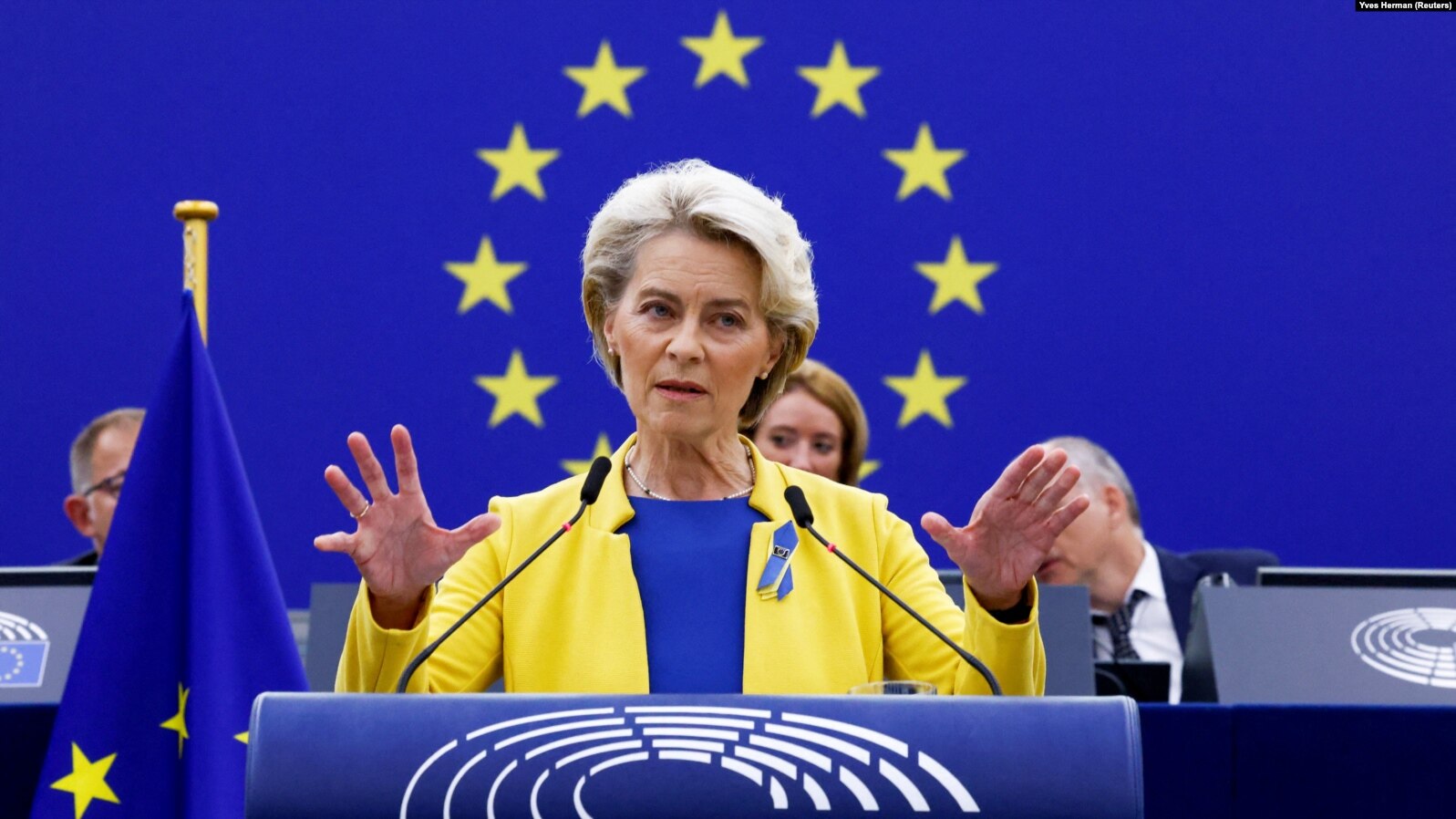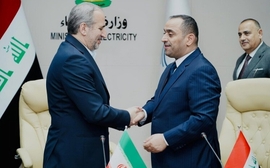EU Commission President Ursula von der Leyen has announced that the 27-nation bloc is to impose the ninth round of sanctions against Moscow over its recent attack on Ukraine.
“We are working hard to hit Russia where it hurts to blunt even further its capacity to wage war on Ukraine,” said Leyen during her visit to Finland on Thursday. “I’m confident that we will very soon approve a global price cap on Russian oil with the G7 and other major partners. We will not rest until Ukraine has prevailed over Putin and his unlawful and barbaric war.”
In her speech, Leyen described Putin’s attack on the Ukrainian civil infrastructure as "war crimes", saying that Ukrainians will have to soon face winter with no electricity and in many places no running water because of him.
“Babies, their parents, and grandparents are freezing in the dark, and I strongly condemn these barbaric attacks. But I also know that our Ukrainian friends will overcome this tragedy because they are strong,” added Leyen.
The statement came amid fresh Russian strikes targeting Ukraine’s already failing electricity grid, causing widespread blackouts across the country and in neighbouring Moldova. Power outages were reported in Ukraine’s capital Kyiv, and the surrounding region as well as in Kharkiv and Chernihiv in the north, Odesa in the south and Lviv, a city near the Polish border. A barrage of Russian missile strikes has killed ten people and left 70 percent of the Ukrainian capital without power.
The Russian defence ministry denied targeting the Ukrainian capital, blaming foreign and Ukrainian air defence missiles for the damage in Kyiv.
“Not a single strike was made on targets within the city of Kyiv,” defence ministry spokesperson Igor Konashenkov said.
Meanwhile, one of the Russian rockets damaged a hospital maternity ward in southern Ukraine, killing a two-day-old baby. The strike, which Kyiv has blamed on Russia, hit the two-story building in the town of Vilniansk, near Zaporizhzhia.
Russia has repeatedly denied targeting civilians.
The European Union has already agreed to phase out Russian steel and technology products imports as part of the eighth wave of sanctions imposed on Russia last month over what Moscow calls a "special military operation" in Ukraine.
Yet, the proposal to impose a cap on Russian oil prices faced discord on Wednesday as the leaders of the 27-nation bloc failed to reach an agreement on a G7 proposed price cap for Russian sea-borne oil of $65-$70 per barrel. During the talks, Poland, Lithuania, and Estonia opposed the proposal, arguing that such a price would be too “generous” and suggesting a much lower cap of $30 per barrel.
EU member states are said to keep negotiating on the matter.
While the EU's ban on Russian seaborne crude oil imports fully remains, the price cap, once implemented, would allow European operators to undertake and support the transport of Russian oil to third countries, provided its price remains under a pre-set “cap.”
In early September, the leaders of G7, including Canada, France, Germany, Italy, Japan, the United Kingdom, and the United States, agreed to cap prices for Russian oil in order to both deprive Moscow of a major revenue stream and curb surging global energy prices. Under the deal, EU and G7 countries will ban banks from financing the purchase and sale of Russian oil, insurance companies from insuring shipments, and ports from unloading oil transported by tankers if it is traded at a higher price than that fixed by the European Union. The embargo on all services related to oil exports is to come into force on December 5. Until then, the ban on imports of Russian oil supplied by tankers will apply only to EU and G7 members, while other countries would still be able to buy Russian oil but only at a fixed maximum price.
European Union's price cap was sharply criticized by Russia. Russia has repeatedly warned that it will not supply oil to countries supporting a price cap on Russian oil.







 The number of evacuees from flooded areas in Kazakhstan has reached 97,852 people, including about 32,856 children since March 27.
The number of evacuees from flooded areas in Kazakhstan has reached 97,852 people, including about 32,856 children since March 27.
 The Islamic holy month of fasting, Ramadan comes to an end this week with the celebration of a joyous festival called Eid (meaning “festival” in Ar...
The Islamic holy month of fasting, Ramadan comes to an end this week with the celebration of a joyous festival called Eid (meaning “festival” in Ar...
 Iran's senior military leaders described the drone and missile attack on Israel on April 14 night as “successful".
Iran's senior military leaders described the drone and missile attack on Israel on April 14 night as “successful".



